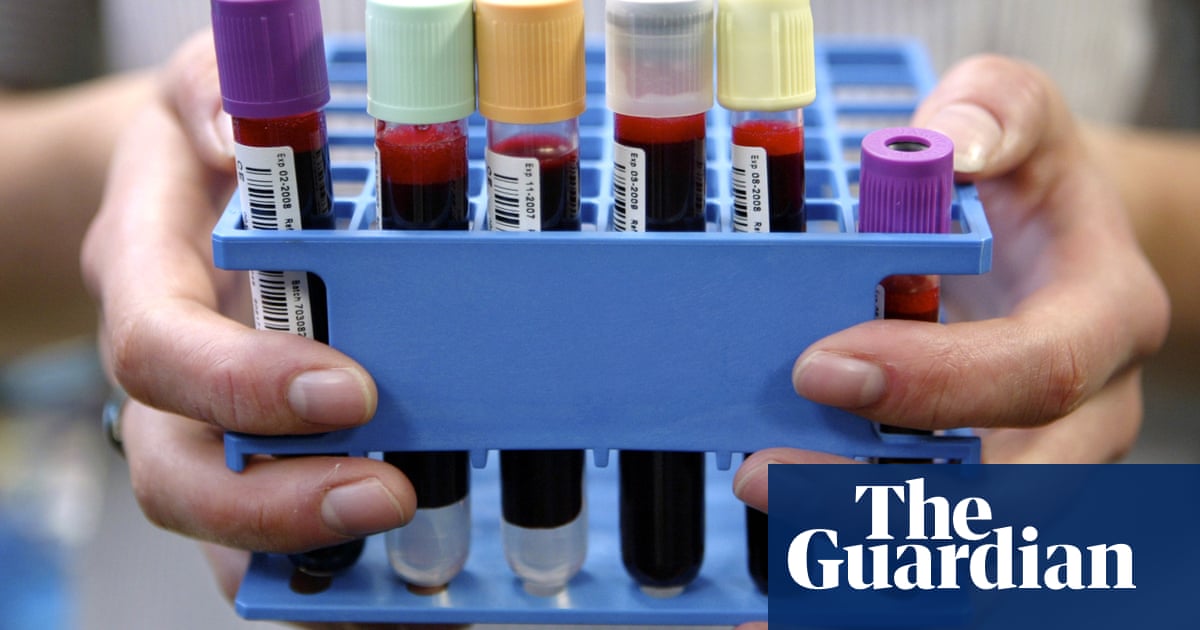The genetic research was heavily reliant on the vast amounts of medical data provided by UK Biobank.

The beginnings of the UK Biobank can be traced back to a test run in a Stockport building, situated between the Cheadle Heath police station and a nearby recreational area. This occurred in the early 2000s, when researchers recognized the potential for genomics and large data sets to revolutionize health studies.
As the prevalence of diabetes, cancer, dementia, and other illnesses increases, researchers advocate for a specialized database focused on genetics, wellness, and lifestyle. This resource will aid in determining individuals with the highest susceptibility to these conditions and in developing preventative measures.
Currently, the UK Biobank is considered the top health database globally and is possibly the most valuable scientific resource in the UK. It contains extensive data from 500,000 volunteers. Over 30,000 researchers from over 100 nations are authorized to utilize the data, resulting in over 6,000 scholarly publications. This data provides the most comprehensive understanding of human health worldwide.
Researchers always praise those who volunteer for long-term prospective studies, but the information provided by participants puts them in a class of their own. More than 10,000 variables are collected on each volunteer, giving researchers extraordinarily rich data to dive into. Blood, urine and saliva are used, as are height, weight and hip and waist measurements. Measurements are collected on blood pressure, heart rate, grip strength, bone density, arterial stiffness, eye examinations, spirometry for lung conditions and fitness tests. And those are just the basics.
Volunteers provide information about their lives and habits through interviews and surveys. This includes their residence, education level, medical background, and daily routines such as shift work, phone usage, sun exposure, smoking and drinking habits, exercise regimen, sleep patterns, and dietary choices. Their mental well-being and cognitive abilities are also monitored over a period of time.
Additional information was collected from above. Over 100,000 individuals volunteered to wear smartwatches for a week and track their physical activity. Through analyzing the data, researchers found that wearable technology can predict the onset of Parkinson’s disease up to seven years in advance. Additionally, another 100,000 individuals are participating in a large-scale project where they receive various imaging scans of their brain, heart, bones, retina, and carotid artery. These images are being used to further research on conditions such as dementia, heart disease, arthritis, and diabetes.
Furthermore, the study also delved into the field of genetics. It required an extensive amount of time and effort, specifically five years and 350,000 hours, to sequence the complete genomes of 500,000 participants. With this valuable information, researchers are able to investigate genetic variations that may increase the vulnerability of individuals to certain diseases. Additionally, they can also examine how factors such as health and lifestyle contribute to these conditions. This process allows for the identification of genes that play a role in the development of diseases, paving the way for potential new treatments. In fact, medications based on human genetic evidence have a higher chance of being successfully implemented in clinical settings compared to those without such support.
The genetic information from the biobank has proven to be successful. Scientists in the United States have identified a gene that could potentially prevent obesity and diabetes, leading to the possibility of a medication that can replicate its benefits. In Britain, doctors have tested polygenic risk scores to identify individuals with a high likelihood of developing cardiovascular disease. These scores are determined by the combined impacts of several genes and offer a customized risk assessment for each individual.
This individualized method is the upcoming trend in healthcare. As researchers gain more knowledge about genetics and illnesses, physicians will categorize their patients based on their unique risks. Those with a higher risk for cancer, heart disease, and dementia, for instance, may be recommended for earlier screening, resulting in improved treatment and prevention.
UK Biobank is currently based in Stockport, but it also has operations in Bristol, Newcastle, Reading, and Oxford. However, after almost 20 years, the organization will be relocating to a modern facility in Manchester.
Source: theguardian.com



